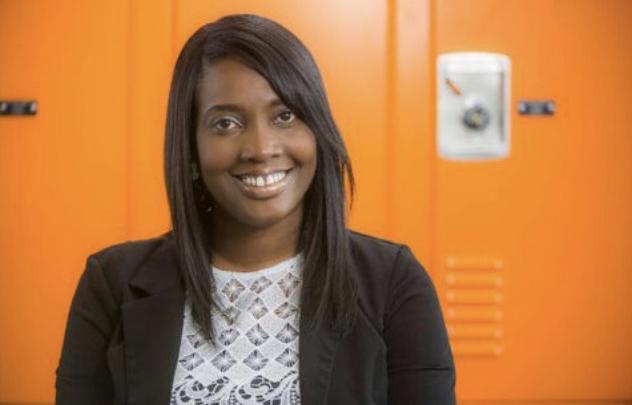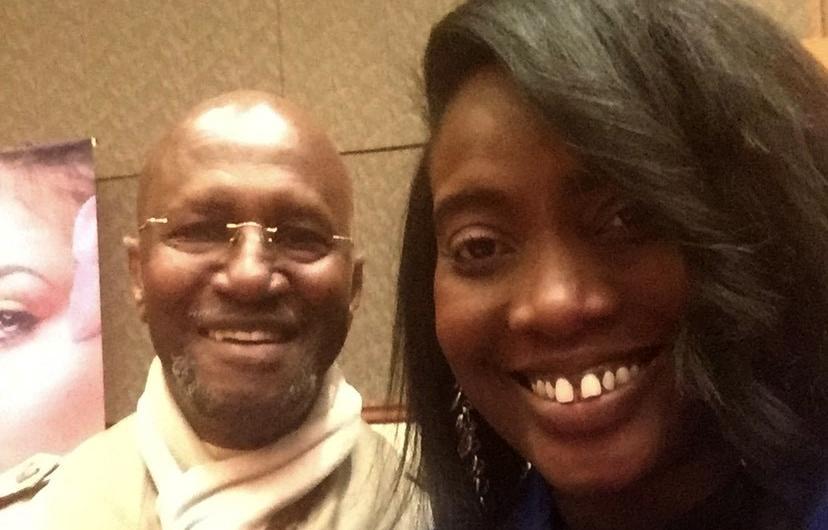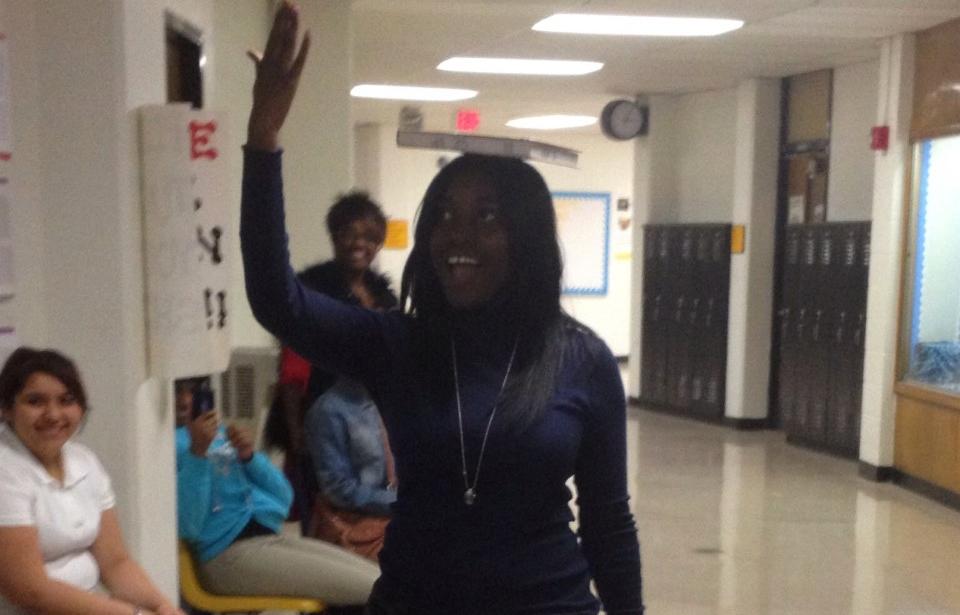
The Impact of Teachers of Color: The Crafting of an Educator
Keena Day reflects on how growing up with Black teachers shaped and influenced her to give back to the community as a teacher.
Author: Keena Day

Keena Day reflects on how growing up with Black teachers shaped and influenced her to give back to the community as a teacher.
Author: Keena Day

“There is no education which one can get from books...that is equal to that which can be gotten from contact with great men and women.”
—Booker T. Washington
Not too long ago, there was a viral tweet that simply asked how many teachers of color people had growing up. To my surprise, many people said numbers astoundingly low—some zero. People of all races who did have teachers of color fondly remembered the impact those teachers had on their lives.
It made me reflect on how having teachers of color profoundly shaped my life as a citizen and educator.
Most of my teachers were Black growing up. Living in Detroit in the 80s and 90s, it was normal to have teachers who shared the hue of my skin. In retrospect, it is glaringly apparent to me that having Black men and women as my teachers informed the trajectory of my life as so many of them went beyond the expectation of merely teaching; they crafted my character—influencing my thinking, making connections to my family, setting very high expectations for my academic and creative performance, and opening up doors of opportunity for me.
I was taught to be a woman of excellence who was culturally astute with the understanding that just as these teachers poured into me, I was expected to give back to my community in the same exact way— imparting knowledge to the generations behind me.

I was taught to be a woman of excellence who was culturally astute with the understanding that just as these teachers poured into me, I was expected to give back to my community in the same exact way—imparting knowledge to the generations behind me.There were some teachers who I count as the architects of my journey as an educator:
I can honestly go on and on about the Black teachers who developed my thinking and molded me into the professional I became.
Once I finally became a teacher, I took the lessons from my teachers and embarked on creating my persona as an educator—my values, my purpose, my methods. As a teacher, I constantly crafted my skill by having a deep understanding of my content and then finding ways to break that understanding down for my students and families—I became a highly rated ELA teacher in middle and high school because of that.
I reached into my community because it was done for me as a child. I don’t know many Black educators who don’t do much of the same.
I forged relationships with my students’ families because I believed it was imperative they were a part of my classroom community. I held high expectations for output. I gave back to my schools’ communities by coaching musicians, orators and poets for competitions and school concerts, lent my voice to causes my students were committed to such as immigration reform (as African, Latinx and Afro-Latinx students are disproportionately affected), gave refuge to my LBGTQIA+ students when they felt ostracized or needed someone to listen, volunteered at games, served as advisor for student groups and attended funerals of students’ family members or students I taught.

In my current role as a literacy leader, it has become vividly clear to me how important having teachers of color in the classroom is. These days, I visit classrooms in many different states where the overwhelming majority of teachers are white and female. In several school networks I have worked for, on top of there being few Black teachers, there are even fewer administrators.
I have been in classrooms where students rarely read stories with characters that look like them or celebrate their cultures.
Quite frankly, I have seen many questionable practices ranging from outright racism or microaggressions to more subtly oppressive practices. These include mindsets that tout low expectations because the teacher thinks a student “can’t,” or what I call “teaching malpractice” where a teacher enters the profession from other avenues and does not personally seek to develop their content and pedagogical expertise.
Schools need skilled teachers of color in front of students in American classrooms and the research to this fact is overwhelming. The report Diversifying the Teaching Profession: How to Recruit and Retain Teachers of Color by Desiree Carver Thomas of the Learning Policy Institute states:
The report also mentions that “while the population of teachers of color overall is growing, Black and Native American teachers are a declining share of the teacher workforce and the gap between the percentage of Latinx teachers and students is larger than for any other racial or ethnic group."
It is clear that there must be a push for more teachers of color. Current methods of recruitment of teachers of color should be deeply examined to ensure incentives for pay, forgiveness for student loans and other monetary benefits are developed to entice aspiring teachers, especially in places where fewer teachers of color inherently live.
We need to create direct pathways between school districts and universities (including at HBCUs or schools with large populations of people of color) in areas that severely need teachers of color as well as alternatives to licensure. It is imperative we demand our local governments to directly impact our teaching workforce by instituting these kinds of recruitment strategies and specifically task our representation in Congress to create federal bills that create opportunities to improve the dire current state of diversity in our school workforce.
There is so much at stake for our students!
It is critical that citizens join in the work to make access a reality for all students. Without the teachers who informed my journey as an educator, I would not possibly have crafted this life of creativity, education and service to my community as an adult. We must holistically prepare our younger generations for a life that is just beginning to exist by increasing the amount of them impacted by teachers of color.
Keena Day is an activist, educator, musician, writer and poet. She has been an educator for 16 years. Keena has taught AP Language and Literature, as well as standard and honors English courses grades 6-12. She has also taught as an adjunct freshman composition and technical writing instructor at the collegiate level. After serving as a district literacy coach (MNPS-Nashville) and master teacher (SCS-Memphis), she subsequently opened her own educational consulting company called The Savvy Urban Educators where she consulted with public and charter schools. She is currently the Senior Manager of Humanities for DSST Public Schools, was previously the Director of Secondary Literacy for grades 5-12 at KIPP: Colorado Schools, a Moonshot Fellow (Fall 2019) and a National Association of Advanced Teacher Education (NAATE) alumni.
Follow Keena online at:
*First photo taken by Honored Photography, Colorado.